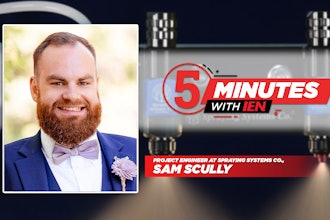In June 2021, firearms maker Dark Storm Industries announced plans to relocate manufacturing from New York to Titusville, Florida. The company intended to build a new 25,000-square-foot headquarters and manufacturing plant in the Sunshine State, foreseeing a capital investment of approximately $3.2 million and 87 new jobs.
However, Florida Today has reported that the company, which caters specifically to the AR platform modern sporting rifles, elected not to build a new facility and, as a result, will lose over $1 million in financial incentives.
The report cited a 300% increase in the facility’s construction costs and a “dramatic” rise in financing costs since the project’s initiation, according to Dark Storm managing partner Edward Newman. In a letter to a local government economic program, Newman explained that these factors rendered the project “no longer economically viable.”
Most Read on IEN:
- Job Cuts Loom as VW Chief Warns It Is 'No Longer Competitive'
- U.S. Steel to Permanently Idle Steelmaking at Ill. Facility
- Elevator Drops 650 Feet in Deadly Platinum Mine Accident
- U.S. Gas Prices Have Fallen or Remained Steady for 10 Weeks Straight. Here's Why
Dark Storm planned to build the new plant on 9.8 acres that the company bought for $362,600 in 2021 at Spaceport Commerce Park. Dark Storm expected the facility to house manufacturing, warehousing and shipping operations and create 50 direct jobs with an average salary of $50,000.
However, following higher construction costs, permit delays and increased interest rates on commercial loans, Dark Storm decided not to construct the new facility. Instead, the company opted to lease manufacturing space on nearby Merritt Island. The company will use the space until it finds a “suitable existing facility.”
The county commission voted to repurchase the undeveloped area from Dark Storm for the original price and will now offer the land to other tenants.
While Dark Storm got the money back spent on the land, it will still have to forfeit $1.08 million in economic incentives. The company will also lose a 10-year deal for a 100% break on county property taxes and a seven-year deal for a 70% break on city property taxes.






















